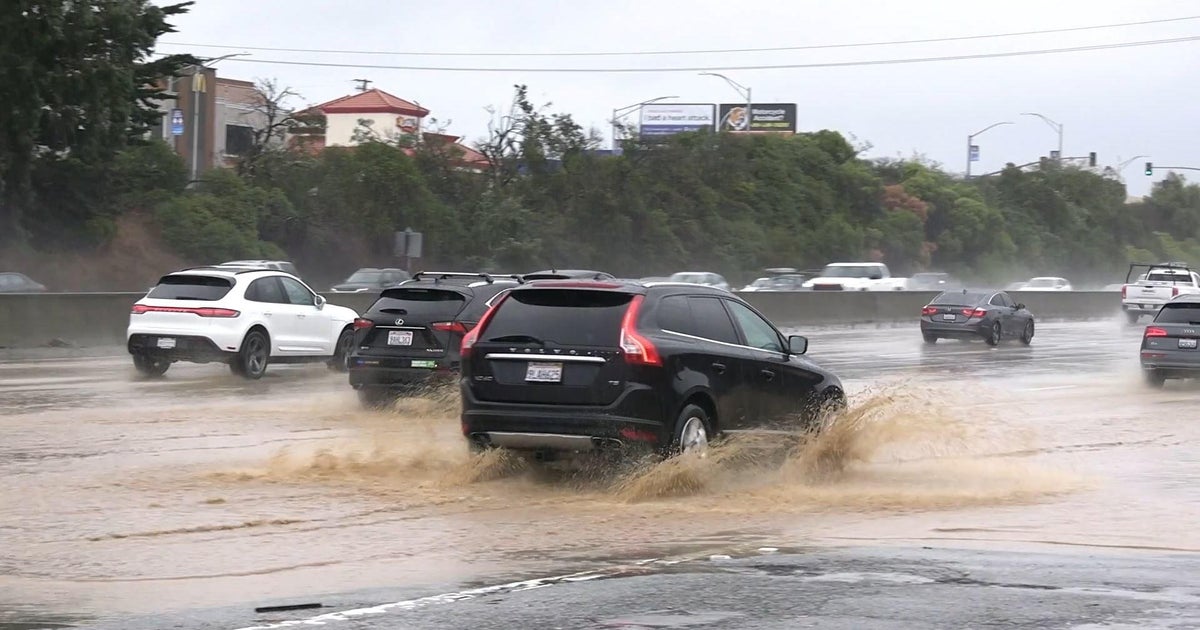Prop. 22: Uber Drivers Sue Over Alleged 'Pressure' To Vote, Advocate For Ballot Measure
SAN FRANCISCO (CBS / CNN) -- For months, Uber drivers and passengers in California have received aggressive messaging in support of its controversial ballot initiative, Proposition 22.
Now, some Uber drivers are suing the San Francisco ride-hailing giant, saying the company has "unlawfully" pressured them and other drivers to support the measure.
California Proposition 22, or Prop 22, seeks to exempt Uber and other gig companies from a state labor law that would require them to classify their drivers as employees.
The class action lawsuit, filed Thursday in a San Francisco Superior Court on behalf of two Uber drivers and two nonprofit organizations, alleges that Uber is "exerting extreme and wrongful pressure on its drivers to vote for and advocate for the passage of Proposition 22" through its usage of in-app messaging.
• ALSO READ: Appeals Court Upholds Ruling On Classifying Lyft, Uber Drivers As Employees Amid Crucial Prop. 22 Vote
The lawsuit alleges this is in violation of California's Labor Code, which prohibits employers from controlling or directing the political activities of employees or attempting to coerce or influence employees' on engaging in any political action or political activity.
According to the lawsuit, first reported by The Washington Post, Uber forces its drivers to read misinformation about the ballot measure, threatens them with the loss of employment if Prop 22 fails to pass, and pressures drivers to indicate their support of it. In a screenshot included in the complaint, one of the prompts shown to drivers asks them to select "YES ON PROP 22" or "OK."
"This pressures drivers to accept Uber's position because it does not provide an option to vote no," the complaint reads.
Hector Castellanos, who drives for both Uber and Lyft, told KPIX 5 that the ads first appeared a few weeks ago. "In order to keep working, you have to click 'yes'," Castellanos said.
Professor Bertrall Ross, who teaches constitutional and election law at UC Berkeley says this is a case of California election law not catching up to technology.
"The California legislature and the California Fair Political Practices Commission probably have not anticipated this particular issue," said Prof. Ross. "You don't have that many scenarios in which an app-based company has a ballot proposition that will favor or disfavor a particular company."
In a statement, an Uber spokesperson said: "This is an absurd lawsuit, without merit, filed solely for press attention and without regard for the facts. It can't distract from the truth: that the vast majority of drivers support Prop 22 and have for months because they know it will improve their lives and protect the way they prefer to work."
The lawsuit is the latest escalation in the fight over Proposition 22 in the country's most populous state. Uber, Lyft, Instacart, DoorDash, and Uber-owned Postmates have put a combined $188 million into passing Prop 22, which aims to allow companies to continue treating ride-hail and delivery drivers as independent contractors with some benefit concessions. For many weeks, Californians have been inundated with television and social media ads, email blasts, and push notifications from the Yes campaign and the gig companies about the measure.
If Prop 22 fails to pass, workers would likely be considered employees who are entitled to a minimum wage, overtime pay, workers' compensation, unemployment insurance and paid sick leave under Assembly Bill 5, a state labor law that went into effect in January.
In May, the California Attorney General and a coalition of city attorneys sued Uber and Lyft accusing them of misclassifying drivers as independent contractors and depriving them of protections they would be entitled to as employees. An Uber spokesperson said in a statement at the time that it plans to "contest this action in court." A Lyft spokesperson said it is "looking forward to working with the Attorney General and mayors across the state to bring all the benefits of California's innovation economy to as many workers as possible."
David McCuan, a political science professor at Sonoma State University, told CNN Business that the lawsuit is an "indication of the strategies that will be used by the opponents of Prop. 22."
"It is not about going to war dollar for dollar," said McCuan, of the opposition, backed by labor and union organizations, which has put just roughly $15 million behind its fight to date. "It's about being strategic on how to legally challenge and set the ground for what eventually will be a broader legal battle if the ballot passes."
McCuan said that if it does pass, the battle won't end on November 3."The legal wrangling around this is just beginning," he added.
The drivers, who are being represented by Rudy, Exelrod, Zieff & Lowe and nonprofit Legal Aid at Work, are seeking an injunction, an order that Uber is violating the law, and penalties under the Private Attorney General Act, which could amount to $200 million, with 75% going to the State of California.
© Copyright 2020 CBS Broadcasting Inc. All Rights Reserved. This material may not be published, broadcast, rewritten. CNN contributed to this report.



